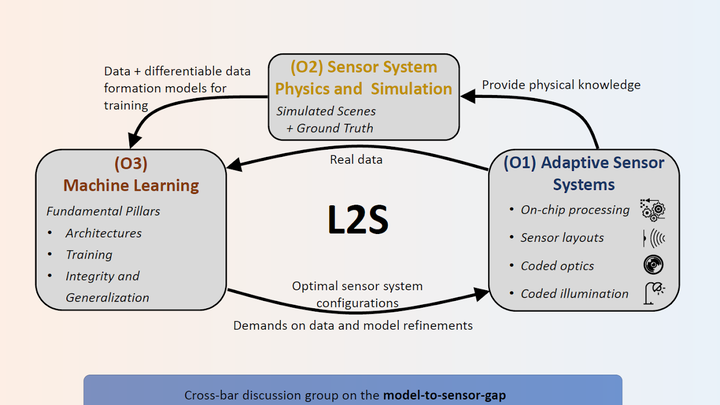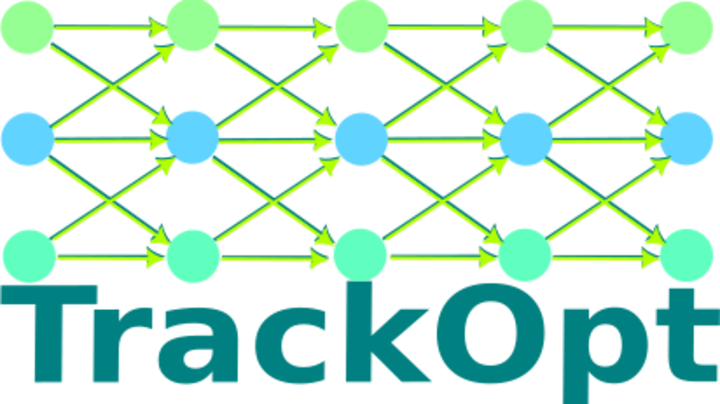Projects at the Chair for Machine Learning
Projects and Workshops
Ongoing Funded Projects in Machine Learning
Learning to Sense

Learning to Sense – Jointly Optimizing Sensor System Designs and Neural Networks -
DFG Research Unit 5336
The Confluence of Machine Learning and Sensor System Development
The German Research Foundation (DFG) has selected L2S as one out of eight research units in Germany that conduct dedicated fundamental research on artificial intelligence along with an interdisciplinary partner field, in our case sensor system development. The project is situated at the Center for Sensors Systems (ZESS) at the University of Siegen, and builds upon more than 30 years of experience in the field of fundamental and application-oriented, interdisciplinary, research at ZESS. Margret Keuper, the Head of the Machine Learning Group at the University of Mannheim is an external PI.
TrackOpt

TrackOpt – Learning to Optimize Physically Constrained Sparse-to-Dense Point Tracking – funded by the BMBF (Federal Ministry of Education and Research)
The tracking of individually occurring points or dense point clouds is highly relevant in a variety of physical and biological problems. Such problems pose a variety of challenges for machine learning methods, since learning must be possible on the basis of often relatively small amounts of annotated training data that is often subject to measurement uncertainties. The aim of this project is to create an efficient method framework that enables new tracking problems to be flexibly integrated and reliably solved. Model-driven, potentially discrete optimization problems are integrated with deep neural networks so that the strengths of both approaches can be exploited. In particular, the integration of model-driven knowledge means that the planned framework can work in a very data-efficient manner. At the same time, learned networks are optimized to predict consistent solutions despite uncertainty and measurement inaccuracy.
Previous Funded Projects
- ClimateVisions (2023 – 2025) – funded by Federal Ministry of Research, Technology and Space (BMFTR), Co-funded by the European Union
- DeToL – Deep Topology Learning - funded by the BMBF (Federal Ministry of Education and Research)
- Video Segmentation from Multiple Representations using Lifted Multicuts - DFG Project KE 2264/
1–1
Research Project Pages
Workshops
- Proposed NeurIPS 2025 Workshop on Reliability of Vision and Multi-Modal Models
- Annual CCVision Network Meeting